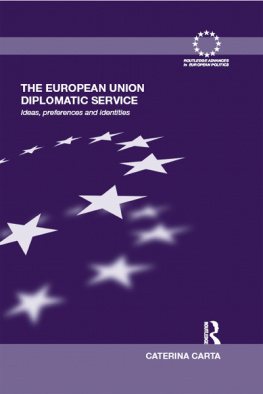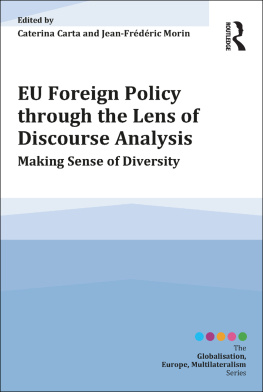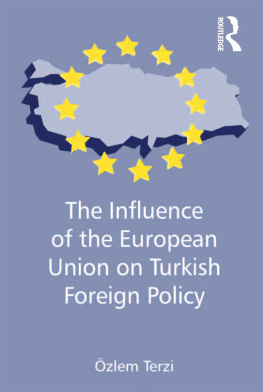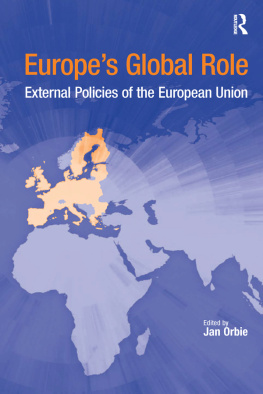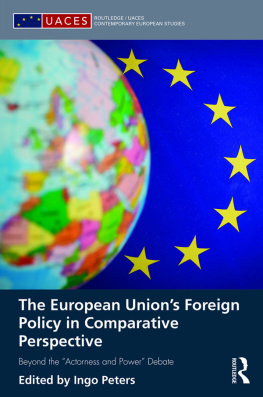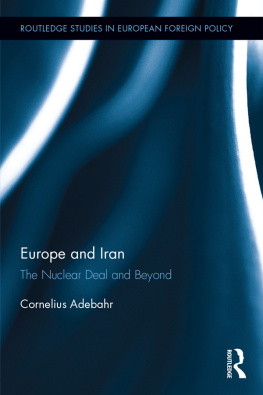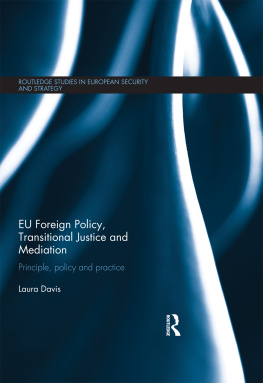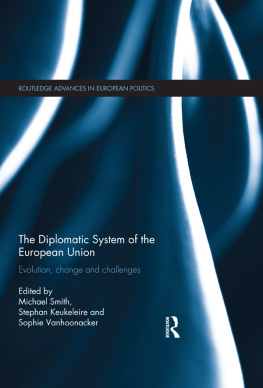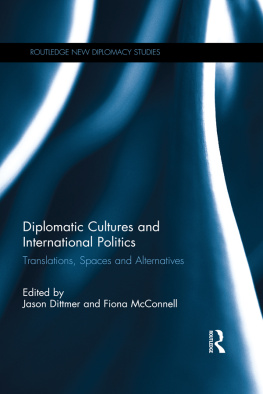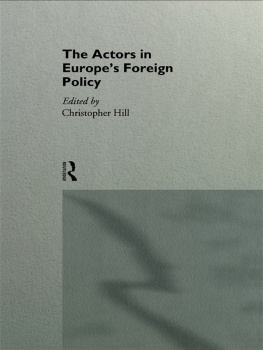| 1 | Russian Messianism
Third Rome, revolution, Communism and after
Peter J.S. Duncan |
| 2 | European Integration and the Postmodern Condition
Governance, democracy, identity
Peter van Ham |
| 3 | Nationalism in Italian Politics
The stories of the Northern League, 19802000
Damian Tambini |
| 4 | International Intervention in the Balkans since 1995
Edited by Peter Siani-Davies |
| 5 | Widening the European Union
The politics of institutional change and reform
Edited by Bernard Steunenberg |
| 6 | Institutional Challenges in the European Union
Edited by Madeleine Hosli, Adrian van Deemen and Mika Widgrn |
| 7 | Europe Unbound
Enlarging and reshaping the boundaries of the European Union
Edited by Jan Zielonka |
| 8 | Ethnic Cleansing in the Balkans
Nationalism and the destruction of tradition
Cathie Carmichael |
| 9 | Democracy and Enlargement in Post-Communist Europe
The democratisation of the general public in fifteen Central and Eastern European countries, 19911998
Christian W. Haerpfer |
| 10 | Private Sector Involvement in the Euro
The power of ideas
Stefan Collignon and Daniela Schwarzer |
| 11 | Europe
A Nietzschean perspective
Stefan Elbe |
| 12 | European Union and E-Voting
Addressing the European Parliaments internet voting challenge
Edited by Alexander H. Trechsel and Fernando Mendez |
| 13 | European Union Council Presidencies
A comparative perspective
Edited by Ole Elgstrm |
| 14 | European Governance and Supranational Institutions
Making states comply
Jonas Tallberg |
| 15 | European Union, NATO and Russia
Martin Smith and Graham Timmins |
| 16 | Business, the State and Economic Policy
The case of Italy
G. Grant Amyot |
| 17 | Europeanization and Transnational States
Comparing Nordic central governments
Bengt Jacobsson, Per Lgreid and Ove K. Pedersen |
| 18 | European Union Enlargement
A comparative history
Edited by Wolfram Kaiser and Jrgen Elvert |
| 19 | Gibraltar
British or Spanish?
Peter Gold |
| 20 | Gendering Spanish Democracy
Monica Threlfall, Christine Cousins and Celia Valiente |
| 21 | European Union Negotiations
Processes, networks and negotiations
Edited by Ole Elgstrm and Christer Jnsson |
| 22 | Evaluating Euro-Mediterranean Relations
Stephen C. Calleya |
| 23 | The Changing Face of European Identity
A seven-nation study of (supra)national attachments
Edited by Richard Robyn |
| 24 | Governing Europe
Discourse, governmentality and European integration
William Walters and Jens Henrik Haahr |
| 25 | Territory and Terror
Conflicting nationalisms in the Basque country
Jan Mansvelt Beck |
| 26 | Multilateralism, German Foreign Policy and Central Europe
Claus Hofhansel |
| 27 | Popular Protest in East Germany
Gareth Dale |
| 28 | Germanys Foreign Policy towards Poland and the Czech Republic
Ostpolitik revisited
Karl Cordell and Stefan Wolff |
| 29 | Kosovo
The politics of identity and space
Denisa Kostovicova |
| 30 | The Politics of European Union Enlargement
Theoretical approaches
Edited by Frank Schimmelfennig and Ulrich Sedelmeier |
| 31 | Europeanizing Social Democracy?
The rise of the party of European socialists
Simon Lightfoot |
| 32 | Conflict and Change in EU Budgetary Politics
Johannes Lindner |
| 33 | Gibraltar, Identity and Empire
E.G. Archer |
| 34 | Governance Stories
Mark Bevir and R.A.W. Rhodes |
| 35 | Britain and the Balkans
1991 until the present
Carole Hodge |
| 36 | The Eastern Enlargement of the European Union
John OBrennan |
| 37 | Values and Principles in European Union Foreign Policy
Edited by Sonia Lucarelli and Ian Manners |
| 38 | European Union and the Making of a Wider Northern Europe
Pami Aalto |
| 39 | Democracy in the European Union
Towards the emergence of a public sphere
Edited by Liana Giorgi, Ingmar Von Homeyer and Wayne Parsons |
| 40 | European Union Peacebuilding and Policing
Michael Merlingen with Rasa Ostrauskaite |
| 41 | The Conservative Party and European Integration since 1945
At the heart of Europe?
N.J. Crowson |
| 42 | E-Government in Europe
Re-booting the state
Edited by Paul G. Nixon and Vassiliki N. Koutrakou |
| 43 | EU Foreign and Interior Policies
Cross-pillar politics and the social construction of sovereignty
Stephan Stetter |
| 44 | Policy Transfer in European Union Governance
Regulating the utilities
Simon Bulmer, David Dolowitz, Peter Humphreys and Stephen Padgett |
| 45 | The Europeanization of National Political Parties
Power and organizational adaptation
Edited by Thomas Poguntke, Nicholas Aylott, Elisabeth Carter, Robert Ladrech and Kurt Richard Luther |
| 46 | Citizenship in Nordic Welfare States |

